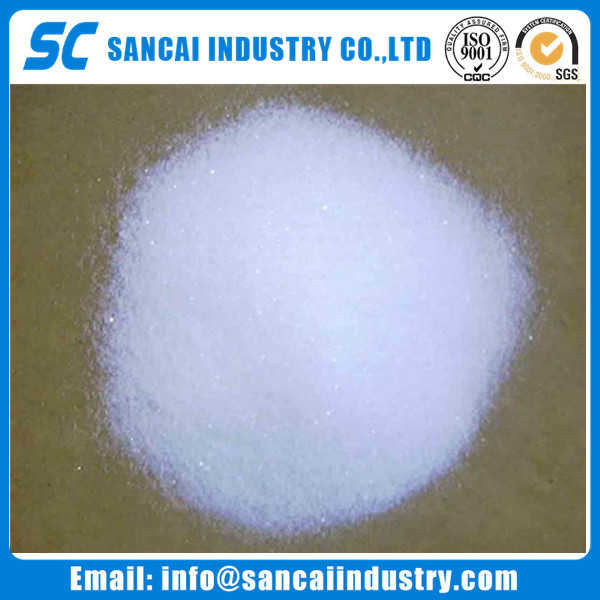X- n,n-dimethylglycine hcl powder. Out of scope - Out of scope for RxNorm and will not receive RxNorm normal forms. Out of scope information includes radiopharmaceuticals, contrast media, herbals, homeopathics, and food. Drug names that are ambiguous or not compatible with the RxNorm system, such as multivitamins with more than 4,000 characters. N,N-Dimethylglycine HCl is a form of DMG that has been bonded with hydrochloride to aid with absorption. DMG Supplement (Dimethylglycine) Benefits. DMG Supplement (Dimethylglycine) may function as an antioxidant and may help fortify immune function. † It supports the brain and promotes healthy mood.
| Names | |
|---|---|
| IUPAC name | |
| Other names N,N-Dimethylglycine | |
| Identifiers | |
| |
| 3DMet | |
| 1700261 | |
| ChEBI | |
| ChemSpider |
|
| DrugBank | |
| ECHA InfoCard | 100.012.971 |
| EC Number |
|
| 82215 | |
| KEGG |
|
| MeSH | dimethylglycine |
| RTECS number | |
CompTox Dashboard(EPA) | |
| |
| |
| Properties | |
| C4H9NO2 | |
| Molar mass | 103.121 g·mol−1 |
| Appearance | White crystals |
| Odor | Odourless |
| Density | 1.069 g/mL |
| Melting point | 178 to 182 °C (352 to 360 °F; 451 to 455 K) |
| Boiling point | 175.2 °C (347.4 °F; 448.3 K) |
| Hazards | |
| GHS pictograms | |
| GHS Signal word | Warning |
| H302 | |
| Lethal dose or concentration (LD, LC): | |
| >650 mg kg−1(oral, rat) | |
| Related compounds | |
Related alkanoic acids | |
| Dimethylacetamide | |
Except where otherwise noted, data are given for materials in their standard state (at 25 °C [77 °F], 100 kPa). | |
| verify (what is ?) | |
| Infobox references | |
Dimethylglycine (DMG) is a derivative of the amino acidglycine with the structural formula (CH3)2NCH2COOH. It can be found in beans and liver. It can be formed from trimethylglycine upon the loss of one of its methyl groups. It is also a byproduct of the metabolism of choline.
When DMG was first discovered, it was referred to as Vitamin B16, but, unlike true B vitamins, deficiency of DMG in the diet does not lead to any ill-effects and it is synthesized by the human body in the citric acid (or Krebs) cycle meaning it does not meet the definition of a vitamin.
Uses[edit]
N N Dimethylglycine
Dimethylglycine has been suggested for use as an athletic performance enhancer, immunostimulant, and a treatment for autism, epilepsy, or mitochondrial disease.[2] There is no evidence that dimethylglycine is effective for treating mitochondrial disease.[3] Published studies on the subject have shown little to no difference between DMG treatment and placebo in autism spectrum disorders.[4][5]
Biological activity[edit]
Dimethylglycine has been found to act as an agonist of the glycine site of the NMDA receptor.[6]
Preparation[edit]
This compound is commercially available as the free form amino acid, and as the hydrochloride salt [2491-06-7 ]. DMG may be prepared by the alkylation of glycine via the Eschweiler–Clarke reaction. In this reaction, glycine is treated with aqueous formaldehyde in formic acid that serves as both solvent and reductant. Hydrochloric acid is added thereafter to give the hydrochloride salt. The free amino acid may have been obtained by neutralization of the acid salt, which has been performed with silver oxide.[7]
B15


Dimethylglycine Hcl
- H2NCH2COOH + 2 CH2O + 2 HCOOH → (CH3)2NCH2COOH + 2 CO2 + 2 H2O
N N-dimethylglycine Hcl (dmg) Powder
References[edit]
- ^'dimethylglycine - Compound Summary'. PubChem Compound. USA: National Center for Biotechnology Information. 16 September 2004. Identification. Retrieved 24 April 2012.
- ^'Dimethylglycine'. About Herbs, Botanicals & Other Products. Memorial Sloan–Kettering Cancer Center. December 8, 2009.
- ^Pfeffer, Gerald; Majamaa, Kari; Turnbull, Douglass M.; Thorburn, David; Chinnery, Patrick F. (2012-04-18). 'Treatment for mitochondrial disorders'. The Cochrane Database of Systematic Reviews (4): CD004426. doi:10.1002/14651858.CD004426.pub3. ISSN1469-493X. PMID22513923.
- ^Bolman WM, Richmond JA (June 1999). 'A double-blind, placebo-controlled, crossover pilot trial of low-dose dimethylglycine in patients with autistic disorder'. Journal of Autism and Developmental Disorders. 29 (3): 191–4. doi:10.1023/A:1023023820671. PMID10425581.
- ^Kern JK, Miller VS, Cauller PL, Kendall PR, Mehta PJ, Dodd M (March 2001). 'Effectiveness of N,N-dimethylglycine in autism and pervasive developmental disorder'. Journal of Child Neurology. 16 (3): 169–73. doi:10.1177/088307380101600303. PMID11305684.
- ^Lin, Jen-Cheng; Chan, Ming-Huan; Lee, Mei-Yi; Chen, Yi-Chyan; Chen, Hwei-Hsien (2016). 'N,N-dimethylglycine differentially modulates psychotomimetic and antidepressant-like effects of ketamine in mice'. Progress in Neuro-Psychopharmacology and Biological Psychiatry. 71: 7–13. doi:10.1016/j.pnpbp.2016.06.002. ISSN0278-5846. PMID27296677.
- ^Clarke, H. T.; Gillespie, H. B.; Weisshaus, S. Z. (1933). 'The Action of Formaldehyde on Amines and Amino Acids'. Journal of the American Chemical Society. 55 (11): 4571. doi:10.1021/ja01338a041.
